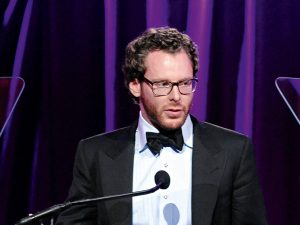Billionaire, and the founder of Napster, Sean Parker, announced that he will be giving $250 million to cancer research in a concerted effort to speed up the process that will lead to a cure. Parker is known to throw the proverbial monkey wrench into anything he tries his hand at. He caused panic and change in the music industry when he founded his legendary Napster and was one of the true founders and giants of the social media phenomenon as Facebook’s first president.
Now, Parker has set his aim on cancer research. The recently established Parker Institute for Cancer Immunotherapy will be the recipient of the $250 million grant and Parker has brought together a collaboration of leading physicians and cancer research scientists as well as the drug makers and other cancer related groups and organizations.
“Our model is to enable the most ambitious research to be done by the best people across the field,” said Parker. “We’re concentrating funding around one area where we can have a huge impact.”
In founding his cancer institute nine months ago, Parker is envisioning a “sandbox” affect by where all factions can come together in collaboration thus speeding up the current snails pace of progress in the field. What tends to cause the slow down are both the researchers and the drug companies. The drug companies tend to be cut throat and profit minded cooperations that have always guarded their work, their results, and their products in a highly secretive and litigation minded manner. The scientists, as well, are secretive with regard to their research, especially before they have had an opportunity to publish it, because their individual success is directly tied to their results.
Parker has managed to establish some 300 researchers from the leading cancer research facilities in the country to collaborate and share all of their findings and experiments. Parker, also, hopes to change the sad fact that most people who suffer from cancer rarely see any benefit from all of this research and production.
“We’ll make progress,” Parker said, “against three or four cancer types in the next several years.”
PHOTO SOURCE: The New Economy

